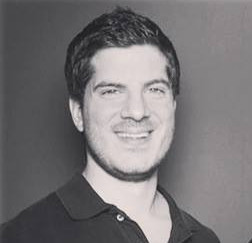Internal Family Systems
Those who know me well likely know I recently completed my formal training in Internal Family Systems — and I could not be happier. IFS is the keystone that’s been missing my work with clients. At least for me, it represents the future of coaching and therapy.
For almost a decade, I have specialized in working with individuals who feel like they’re “never enough” regardless of much much they achieve. Shame, extreme self-criticism, and overwhelming pressure to perform haunt their lives — often robbing them of their best years. The modalities I previously used got results: traditional coaching, self-compassion, mindfulness, and emotional skills training have allowed individuals to transform. But even when clients leave in joy and gratitude from our work, I’ve often felt as if there was just a bit more we could have done. It’s as if there was 10 or 15 percent of untouched work remaining, old wounds that were effectively managed — but not relieved.
That’s where IFS comes in.
Spearheaded by the work of Dr. Richard Schwartz during the 1980s, IFS has turned into a global evidence-based modality that is now recognized as one of the best trauma-informed practices in existence. (Those into trauma may know of Gabor Maté and his work with addiction. Gabor is a friend of Dick’s and supports the Internal Family Systems model.) Unlike other modalities that focus on reason or logic, IFS explores the realm of pure emotion. It gives us a way to investigate unresolved feelings, learn why they exist, and bring them the help they need.
Mark’s Journey
(This story, like all client stories, has been modified to protect identities.)
Mark was in his mid-20s and had a lifetime struggle with fear and anxiety. Previously diagnosed with social anxiety, he made tremendous gains in therapy. Yet while he felt better, he started working with me because he knew there was more. While he no longer had panic attacks, he still was afraid of being vulnerable and showing himself to the world. An anxious energy remained inside him, one that never went away.
During an Internal Family Systems session a few weeks into our work, I asked Mark to close his eyes and turn his attention inward toward this anxious energy. When I asked where it existed inside him, he pointed to his chest as his breathing and heart rate increased. Mark’s defensive parts quickly rose to the surface as they did their their best to calm him down and take him away from this energy inside. Instead of fighting them, we welcomed protective parts and their concerns. Hesitant at first, they finally let go and allowed him to connect to this place of anxious energy.
Tears began to pour out of his eyes. We we stayed here, breathing in this space, as an image from the past arrived. He was a child visiting his best friend’s house, running around the yard while laughing and having fun. Suddenly, his friend’s mother grabbed him and scolded at him in rage. He had no idea what he did wrong. He still didn’t. All he knew was the pain.
Even though Mark was in his mid-20s, this part of him was still stuck in the past. It was still there, desperately trying to figure out what he did wrong so he wouldn’t be yelled at again. Throughout the rest of this session, we helped this part realize it didn’t have to stay in this place. We allowed it to build a healthy relationship with Mark, let go of the pain it had been carrying, and leave this scene behind. Even now, weeks later, Mark states this was the most relief he’d ever experienced in a single session with anyone. While a bit more work is likely necessary, his anxious energy has yet to return as it did before.
Building a Better Relationship With Ourselves
IFS works on the assumption we’re all made up of different “parts” that have their own fears, concerns, and desires. There is intuitive wisdom in this language. When you and I are making a hard decision, we often automatically use “parts” to describe the conflict inside us. Part of me wants to do X…another part of me wants to do Y…etc. Internal Family Systems (IFS) formalizes this process and allows us to work with these competing drives.
As someone who specializes in helping those who experience high self-conflict and put overwhelming pressure on themselves, IFS has become my tool of choice. I’m introducing it earlier into my work with clients and have seen better results because of it. It’s the best modality I’ve ever come across.
What parts of you need your attention right now? What would they say if we offered them the chance to speak? Is there an ocean of agreement, or do arguing voices arise from within? Contact me for for your free consultation and start your journey within today!




